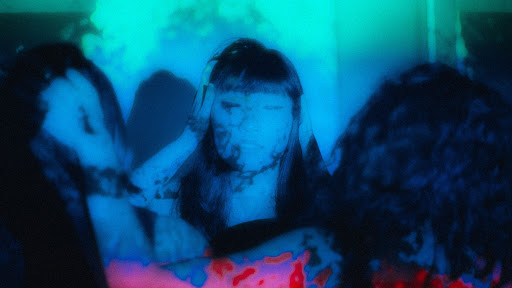For five years, Chew Wei Shan, also known as Weish, was an English Literature teacher.
She liked the stability of her job and enjoyed listening to her students debating about social issues, sharing their emotions and “articulating their own hopes and dreams for humanity”.
However, she yearned for a career in the music industry.
Her interest in music developed when she was about three years old. She grew up watching her father, a self-taught pianist, playing the piano everyday.
She then started to imitate him, playing whatever she could recall by ear. Seeing her enthusiasm, Weish’s parents started giving her formal training which boosted her ability to recognise and create music.
While she was pursuing her English Literature degree at National University of Singapore, she started her side gig, performing covers and originals at weddings and cafes to earn more pocket money. She always felt encouraged whenever there’s a round of applause from the audience.
Weish eventually formed two bands, the indie-electronic duo .gif and experimental band sub:shaman, with her university friends in 2012.


“It happened quite organically – we just started jamming and writing songs together for fun! One thing led to another, and soon we were getting shows and putting out albums,” she said.
Apart from writing songs with the band members, she does vocals and synths in both bands.
“I never expected songwriting and performing to become my career, it sort of just snowballed and I went along for the ride,” she said.
In 2013, Weish became a full-time teacher while continuing with her side gig. As her teaching responsibilities grew, it became harder for her to juggle both schedules.
“Often, I had music rehearsals until 1 or 2am, [and would] then have to wake up at 6am for school,” she said.
Sometimes, she said she had to mark essays and text students right before a show.
In addition, having to turn down “big opportunities”, like performing at prominent overseas festivals and composing music for new films and plays repeatedly was frustrating to her.
“I felt really awful turning these projects and performances down, because they excited me so much,” she said.
Eventually, she realised that she could always go back to teaching in the future, but couldn’t miss out on the rare opportunities in the music industry.
After a little uncertainty, Weish took the leap of faith and quit her full-time teaching job in 2018 to become a full-fledged music artiste.
She’s had the chance to travel the world and “work with so many amazing artistes both locally and internationally”. She’s performed at the Golden Melody Awards in Taiwan and Sundance Film Festival in Utah. She also fulfilled her passion of nurturing others by mentoring and spotlighting new artistes.
“Best of all, I found a community and family in the local arts scene that I love very fiercely,” she said.

Through music, Weish could continue crafting and delivering meaningful stories. One of her proudest achievements was playing a young girl in search of self-discovery in the short film, “You’re The Boy”.
The film was created as part of the SG50 celebrations and revolves around an iconic veteran band from the 60s, Shirley Nair and the Silver Strings. In the film, Weish also did a cover of the song, “You’re The Boy”, which was originally performed by the band.
Weish was especially excited to perform her version of the song and meet with the band’s actual members — Audie Ng (bassist), Rickie (guitarist) and Danny Boy (drummer). She relished the opportunity to convey such a deep and emotional story for the nation.
Looking back, she said her career switch was a good move.
“I get to control my own progress and choose the types of projects I find most fulfilling and exciting, as opposed to answering to bosses and being part of a bureaucratic machine,” she said.
During the COVID-19 pandemic, many artistes have opted to give up their music careers, switching to “non-creative jobs that don’t inspire or excite them”. But Weish is determined to stay put.
“I’ve been doing composition work, voiceovers, writing, and … have had the chance to develop very interesting digital work,” said Weish.

She aims to continue producing work that pushes boundaries and “adds to the world’s musical canon in a meaningful way”. She also hopes to “become a living testament that it’s possible to feed yourself as an artist in Singapore”.
Proofread By: Rytasha Passion Raj and Tay Yi Ling Stacey
